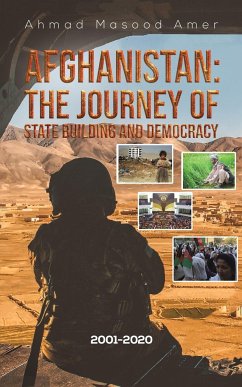The Journey of State Building and Democracy in Afghanistan is a review of the state-building and democratic-governance process in the country which started after the US-led international intervention which toppled the Taliban regime and established a new government. This period marks a new era in the contemporary history of the country which it has never experienced before. From 1993-2001, the country was left deep in crisis and the world forgot Afghanistan after the collapse of the Soviet-backed regime in 1992 and creation of the Taliban. The nation experienced one of their darkest periods in history and the country was turned into a safe haven for international terrorism. After the 9/11, which shook the world, the country came back to international spot light. With support by the international community, reconstruction and development started and major investments were made in building state institutions and establishing democracy and freedom. With the global politics and foreign policy interest of the international allies constantly shifting, the country is again in a critical juncture. Albeit with relative success, there is fear that the country would backslide if international involvement is withdrawn. This book reviews the progress in institution building and the experience of democratic system of governance over the past two decades. It highlights critical points and lessons for the policy makers and the political elites to remedy the current situation and bring changes in as the country continues its journey.








